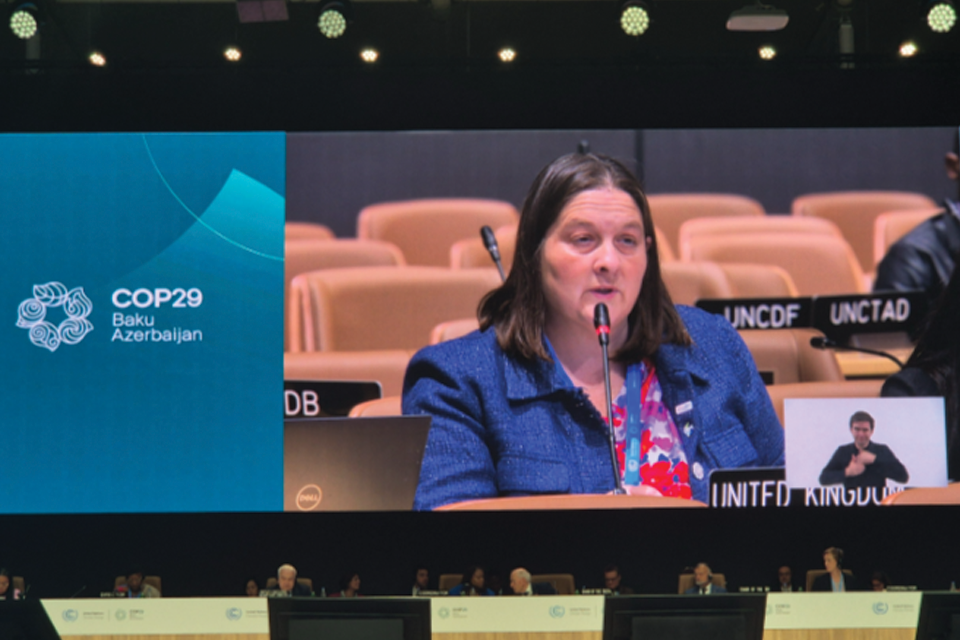As Chair of the Committee on Earth Observation Satellites (CEOS), the UK Space Agency delivered a statement during COP29 in Baku.
As Chair of the Committee on Earth Observation Satellites (CEOS), the UK Space Agency delivered a statement on behalf of CEOS and the Coordination Group for Meteorological Satellites (CGMS) during COP29 in Baku, Azerbaijan.
The statement highlights the vital role that satellite data plays in observing and understanding Earth's Climate. With global coverage, satellites are indispensable for monitoring land cover changes, temperature trends, sea level rise, sea ice melt, and extreme weather events.
As demand for climate data grows, the world's satellite framework must also evolve to keep pace. For example, reducing methane emissions requires information from a number of different satellites - both publicly and privately owned. CEOS and CGMS Agencies are actively developing and coordinating the satellites, ground systems and standards to meet these needs.
COP is a crucial global event where nations come together to discuss and address climate change. It serves as a platform for countries to negotiate and commit to actions to mitigate the impacts of climate change and take informed action. Satellite data informs the negotiations by providing trusted information.

UK Space Agency's Head of Earth Observation and Climate, Beth Greenaway speaking at COP29.
The CEOS statement outlines six key areas where satellites have significantly advanced climate knowledge:
Greenhouse gas measurements: Satellites have improved the measurement of carbon dioxide, methane, and other greenhouse gases, helping to detect major methane leaks and supporting global carbon budget estimates.
Land cover and use: Satellites monitor changes in land use, including deforestation, and to develop greenhouse gas inventories for countries without historical data on their national forest inventory.
Global temperature trends: Satellites provide comprehensive data on global temperatures, helping to identify long-term trends and regional variations.
Melting polar ice and sea level rise: Satellites track changes in polar ice sheets, glaciers and sea level, for example detecting the alarming losses in Greenland's ice sheet.
Extreme Events: Satellites provide near-continuous monitoring and prediction of extreme weather events like hurricanes, heatwaves, wildfires, floods and droughts.
Ocean Health: Satellites provide data on ocean conditions such as temperature and salinity, which are essential for understanding the health of marine environments and trends in ocean acidification.
CEOS is the international body responsible for coordinating observations of the Earth from space. The UK Space Agency's role as CEOS Chair is to oversee the activities of CEOS and ensure it is achieving the objectives of its work plan.






